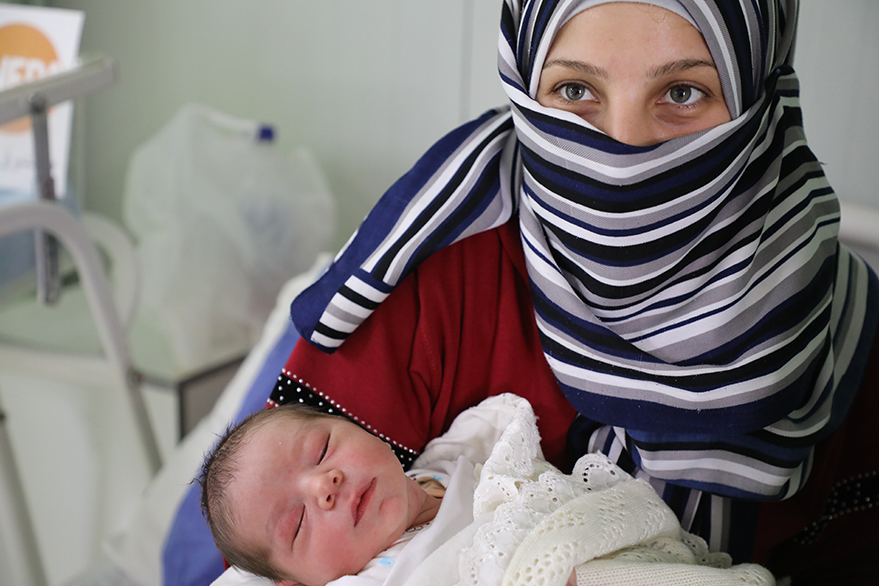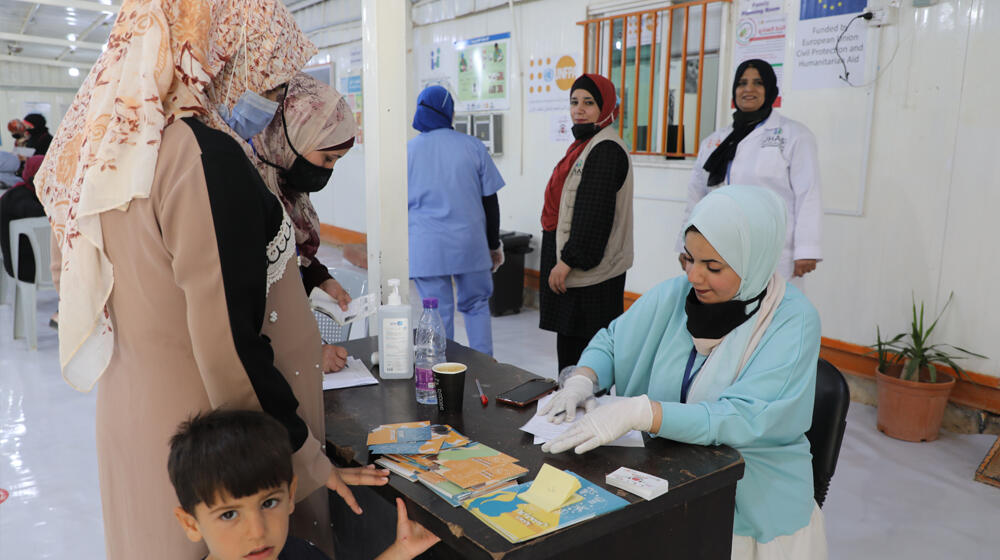In the heart of the Zaatari refugee camp, a symbol of resilience and compassion shines bright. The UNFPA-supported Sexual and Reproductive Health (SRH) Clinic, nestled within the camp, has been a beacon of hope, offering refuge, care, and support to the most vulnerable among Syrian refugees.
Zaatari Camp Overview
Situated 10 kilometers east of Al-Mafraq in the Al-Mafraq Governorate of Jordan, Zaatari Camp has held the distinction of being the world's largest refugee camp for Syrian refugees. Its doors opened on July 28, 2012, in response to the Syrian Civil War. By February 16, 2022, the camp had become home to more than 83,000 individuals. Under the joint administration of the Syrian Refugee Affairs Directorate (SRAD) and the UNHCR, the camp transformed from a collection of tents into a thriving city.
UNFPA Presence in the Camp
Since the camp's inception, the United Nations Population Fund (UNFPA) has been at the forefront of humanitarian efforts in Zaatari. UNFPA's core focus areas encompass Sexual and Reproductive Health (SRH), Gender-Based Violence (GBV), and Adolescents and Youth. Collaborating with national and international partners, UNFPA was dedicated to delivering life-saving services to Syrian refugees while maintaining coordination among its partners.
UNFPA's mission revolved around addressing the reproductive health needs of women and girls. In partnership with the Jordan Health Aid Society (JHAS), its implementing partner, UNFPA provided comprehensive reproductive health services and promoted reproductive rights through four established SRH clinics, including the camp's sole maternity clinic, offering services around the clock.
These clinics have played a vital role in delivering a broad spectrum of services, ensuring women, girls, and newborns access quality healthcare. Services included family planning methods, antenatal care, postnatal care, post-abortion care, UTI and STI management and treatment, anemia screening and treatment, and the detection and prevention of Sexual and Gender-Based Violence (SGBV). They also offered Clinical Management of rape (CMR) services, prevention and management of STIs and HIV, detection and prevention of reproductive cancers (breast and cervical cancer), individual and couple counseling, counseling and services for infertility, sexual health information, education, and counseling, SRHR awareness sessions, and vaccinations for newborns.
Results Achieved
UNFPA's unwavering commitment to providing essential sexual and reproductive health services in Zaatari Camp yielded remarkable results. The SRH clinic's facilitation of safe deliveries stands out as a vital service, overseeing 17,268 safe deliveries within the camp as of 30 October, 2023. Deliveries with complications or requiring Caesarean sections were promptly referred to external referral hospitals, ensuring the safety of mothers and newborns.
In a crisis setting, family planning has been vital, and UNFPA ensures that the clinic provides an average of 9,080 family planning services annually. This allows beneficiaries to access a range of family planning methods, empowering them with choice and control over their reproductive health.
Antenatal and postnatal care have been cornerstones of maternal and neonatal health. UNFPA's dedicated efforts have yielded a monthly provision of more than 1,600 antenatal services, ensuring the facilitation of healthy pregnancies and safe deliveries. Furthermore, women receive postnatal benefits, with support extending into the critical postpartum period.

Addressing common health concerns in camp settings, UNFPA clinics screens an average of 4000 women for anemia every year and provided appropriate treatment. Moreover, our beneficiaries receive treatment for infections, contributing to their overall well-being.
These results underscore the vital role that UNFPA plays in addressing the healthcare needs of the vulnerable population in Zaatari Camp, making a tangible difference in the lives of those enduring the hardships of displacement.
Hope Amidst Adversity
Addressing common health concerns in camp settings, UNFPA clinics screens an average of 4,000 women for anemia every year and provides appropriate treatment. Moreover, our beneficiaries receive treatment for infections, contributing to their overall well-being. In total, the UNFPA-supported clinic offers an average of 72,000 diverse services to Syrian refugees each year.
The SRH clinic and the Women and Girls Safe Space are generously supported by the EU Humanitarian Aid, a generous donor that contributes to the Reproductive Health Clinic, ensuring that vital services continue to reach those in need.


